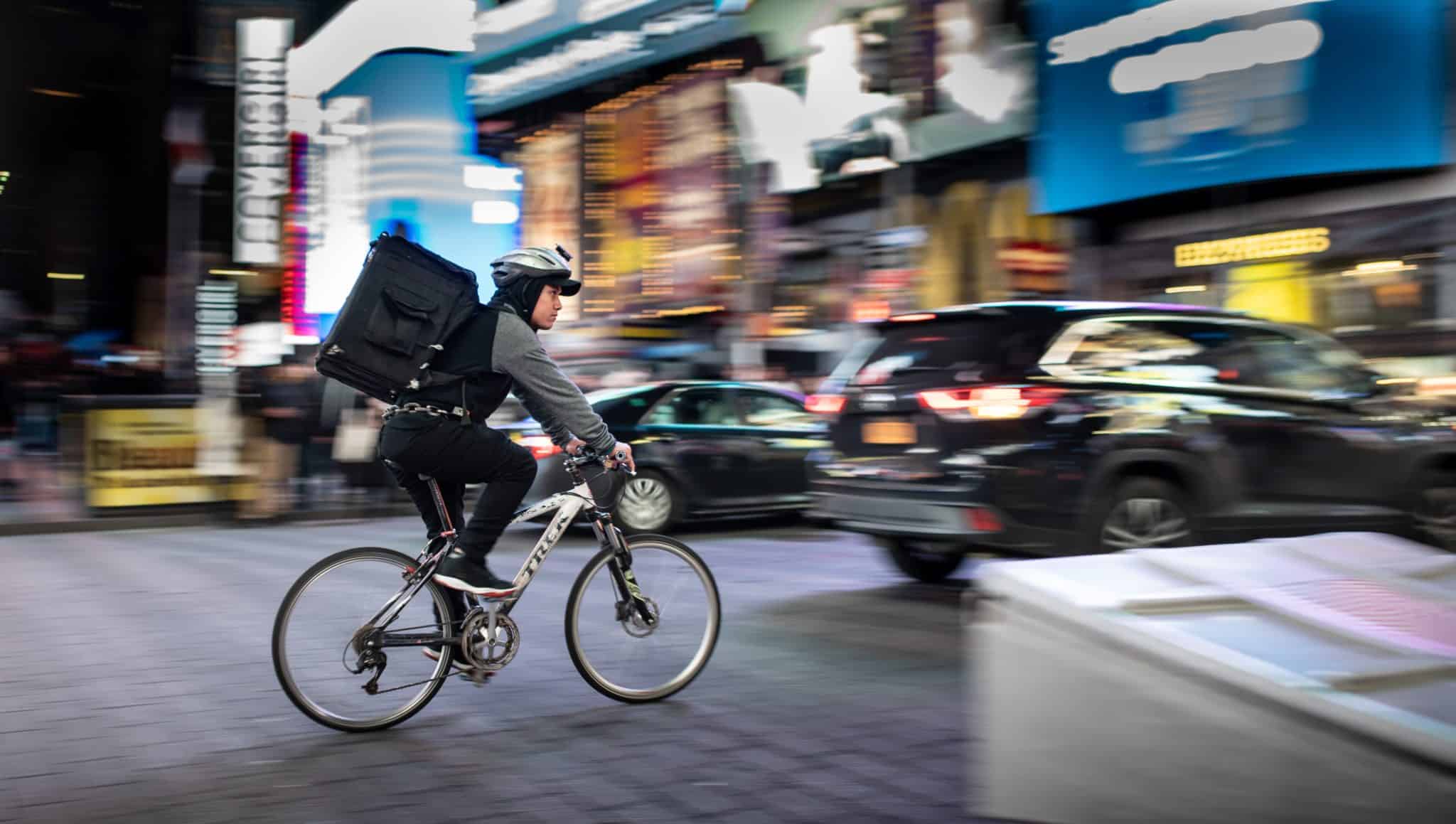Vail Kohnert-Yount is a student at Harvard Law School.
District of Columbia Attorney General Karl Racine announced today that his office is suing food delivery service DoorDash for deceiving consumers by taking tips from food delivery workers. “DoorDash misled consumers, who reasonably believed that their tips would go to workers, not the company’s bottom line,” said Racine. Five months after the office began its investigation, DoorDash explained that it would change its tipping practices, promoting it as a raise for drivers without paying back any of the tips it took under its previous policy. With this lawsuit, the DC Attorney General is seeking to force DoorDash to surrender these tips and pay civil penalties for violating DC’s consumer protection law.
“Increasing numbers of people in mission- and passion-driven fields are waking up to the fact that they are, despite the trappings of middle-class-ness, still workers doing a job,” wrote Sarah Jaffe at The Progressive. In recent weeks, staff at the Southern Poverty Law Center and the National Center for Transgender Equality have taken action in response to their employers’ refusal to voluntarily recognize their unionization efforts. A supermajority of SPLC staff signed union authorization cards before filing an NLRB election petition, and NCTE staff filed a complaint against the organization alleging retaliation after it fired all workers in their bargaining unit. The NCTE staff union’s press release noted, “Ironically, organizing a union and negotiating a contract that prohibits discrimination based on gender identity is the only way for transgender workers to have explicit legal protections in the workplace in over half the country.”
Vice investigated the emerging “platform cooperativism” movement, as worker-owned apps are increasingly providing alternatives to widespread exploitation in the gig economy. The worker-owners of Up & Go, a home cleaning app in New York City, are primarily immigrant women from Latin America. Up & Go cleaners earn $25 per hour, more than double what workers typically earned on their own or through other services. “On other apps, the owners set your wages, but we set our own wages,” said worker-owner Esmeralda Flores. Examples from other countries include Mensakas, a worker-owned delivery app started by two former Deliveroo food couriers in Spain; CoopCycle, a federation of bike delivery co-ops in 16 European cities; and Eva, an alternative to Lyft and Uber in Montreal.






Daily News & Commentary
Start your day with our roundup of the latest labor developments. See all
July 11
Regional director orders election without Board quorum; 9th Circuit pauses injunction on Executive Order; Driverless car legislation in Massachusetts
July 10
Wisconsin Supreme Court holds UW Health nurses are not covered by Wisconsin’s Labor Peace Act; a district judge denies the request to stay an injunction pending appeal; the NFLPA appeals an arbitration decision.
July 9
the Supreme Court allows Trump to proceed with mass firings; Secretary of Agriculture suggests Medicaid recipients replace deported migrant farmworkers; DHS ends TPS for Nicaragua and Honduras
July 8
In today’s news and commentary, Apple wins at the Fifth Circuit against the NLRB, Florida enacts a noncompete-friendly law, and complications with the No Tax on Tips in the Big Beautiful Bill. Apple won an appeal overturning a National Labor Relations Board (NLRB) decision that the company violated labor law by coercively questioning an employee […]
July 7
LA economy deals with fallout from ICE raids; a new appeal challenges the NCAA antitrust settlement; and the EPA places dissenting employees on leave.
July 6
Municipal workers in Philadelphia continue to strike; Zohran Mamdani collects union endorsements; UFCW grocery workers in California and Colorado reach tentative agreements.